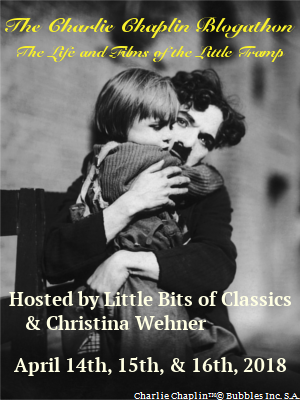 As Will Friedwald writes in his essential A Biographical Guide to the Great Jazz and Pop Singers “The world of pop music is a funny place – perhaps the only area of our culture where someone can be rich and famous and still be considered ‘underrated.'” He is referring to Doris Day. Actually, the entire reason that I purchased his book is because I had read that he was an enthusiastic fan of Doris Day as a singer, which turned out to be perfectly true. “Doris Day can be considered the best [pop singer] just because she’s as great as a pop singer can be.” “Doris Day sang like she had nothing to prove.” “Doris Day has a sound like bottled sunshine. It’s hard to think of another human voice that’s so luxuriously sensual.” “At her very best, Doris Day is worthy of being mentioned in the same breath as Frank Sinatra or Ella Fitzgerald, yet though she’ll hardly die broke, she’s never gotten a fraction of their respect.”
As Will Friedwald writes in his essential A Biographical Guide to the Great Jazz and Pop Singers “The world of pop music is a funny place – perhaps the only area of our culture where someone can be rich and famous and still be considered ‘underrated.'” He is referring to Doris Day. Actually, the entire reason that I purchased his book is because I had read that he was an enthusiastic fan of Doris Day as a singer, which turned out to be perfectly true. “Doris Day can be considered the best [pop singer] just because she’s as great as a pop singer can be.” “Doris Day sang like she had nothing to prove.” “Doris Day has a sound like bottled sunshine. It’s hard to think of another human voice that’s so luxuriously sensual.” “At her very best, Doris Day is worthy of being mentioned in the same breath as Frank Sinatra or Ella Fitzgerald, yet though she’ll hardly die broke, she’s never gotten a fraction of their respect.”
The irony is that Doris Day became a singer by accident. In many ways, her entire career was an accident. Born Doris Mary Anne Kappelhoff, she once said, “I’m still Doris Mary Anne Kappelhoff from Cincinnati, Ohio. All I ever wanted to do was to get married, have a nice husband, have two or three children, keep house and cook – a nice clean house – and live happily ever after – and I ended up in Hollywood.”
But even if she hadn’t ended up in Hollywood, she would have had a stellar career as a pop singer, though it was her career as a singer that ultimately led her to Hollywood. Fortunately, unlike other fine singers like Alice Faye or even Judy Garland, she was still able to record while making films.
She originally intended to be a dancer. As a child, she teamed up with another young dancer, Jerry Dougherty, and danced around Cincinnati, winning prizes until Doris Day’s mother decided they should move to Hollywood, where she was convinced her daughter would be a success. But before they could move, Doris Day was in a car accident, which left her right leg shattered. It took her a year to recover fully. To pass the time, she listened to the radio and tried to sing along with Ella Fitzgerald. She eventually took lessons and her teacher, Grace Raine, recognized that Day’s voice and singing was special.
Day sang at a local Chinese Restaurant, sang on the radio, and soon was hired by band-leader Barney Rapp, who gave her the name Doris Day, supposedly after the song she sang, “Day by Day.” Rapp’s band played at Rapp’s nightclub in Cincinnati, then went on tour. She then sang for bandleaders Bob Crosby, Fred Waring, and finally Les Brown.
After a disastrous marriage to trombonist Al Jorden, who was abusive, she was now a young divorcee with a child and returned to work with Les Brown. In 1945, she would record her first big hit, “Sentimental Journey,” which struck home with the post-WWII mood of returning soldiers and starting life afresh.
Before taking a screen test and being chosen by Michael Curtiz for her first film, Romance on the High Seas (where she had another hit with “It’s Magic”), she signed with Columbia Records. After WWII, the big bands were fading and there was more interest in vocalists, like Frank Sinatra. Unfortunately, many of the songs Columbia would assign Day were cheesy novelty numbers, but there were also records and songs of the highest quality.
She would never tour again and she always preferred not to perform live. The remainder of her career as a singer would occur in the recording studio. But she only grew more popular, both as an actress and singer, into the 1960s.
Some of her greatest albums are “Duet,” where she is accompanied by Andre Previn; “Day by Day” and “Day By Night.” Will Friedwald also makes a case for her recording with Robert Goulet of “Annie Get Your Gun.” But there are many more. She spanned big band, Broadway, pop, and could even swing.
As Friedwald writes, “Dinah Shore, who had been around longer, had a bigger broadcasting career, but couldn’t touch Day in pictures; Judy Garland had a shorter but more spectacular film career, but wasn’t utilized as much on recordings or radio as she should have been. Paramount tried to make Rosemary Clooney the next Doris Day, but she never caught on in pictures. Day was the sole female singer to come from the band world and make the transition to solo stardom and pictures.”
Friedwald tends to measure the ultimate success of a singer, not only by their vocal abilities, but by the body of work that they produce, if they record worthy songs and albums that stand the test of time. In the case of Day, despite all the novelty songs, she recorded an impressive number of songs by the great composers like Gershwin, Berlin, Mercer, Rodgers, etc. Sadly, at least sadly for us, she retired from singing quite early in life, when she was in her forties.
But perhaps it’s churlish to repine. It is her life to live and she gave us so much extraordinary music. Far more than most singer/actors. I can never get tired of listening to her vast body of work.
This post was written as part of the “Second Annual Doris Day Blogathon,” hosted by Love Letters to Old Hollywood. Click here for more posts celebrating Doris Day.
Sources:
Considering Doris Day – by Tom Santopietro
A Biographical Guide to the Great Jazz and Pop Singers – by Will Friedwald
The Great Jazz and Pop Vocal Albums – by Will Friedwald










